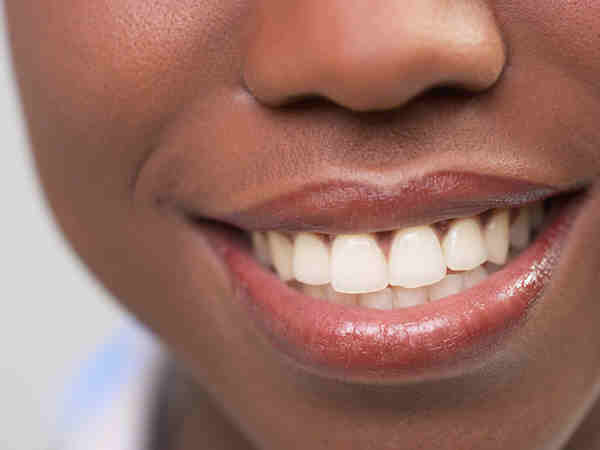
Healthy Nutrition for Healthy Teeth Example
Taylor Wolfram, MS, RDN, LDN
Published January 23, 2017
Daily brushing with fluoride toothpaste and flossing are essential to a healthy smile, but did you know nutrition has an effect on your dental health, too?
Eating a variety of nutrient-rich foods from all the food groups promotes healthy teeth and gums. A balanced diet of fruits, vegetables, protein foods, dairy products and whole grains provides essential nutrients for optimum oral health as well as overall health.
Foods for Optimum Oral Health
- Calcium-rich foods, such as low-fat or fat-free milk, yogurt and cheese, fortified soy drinks and tofu, canned salmon, almonds and dark green leafy vegetables help promote strong teeth and bones.
- Phosphorus, found in eggs, fish, lean meat and dairy products, is good for strong teeth.
- Vitamin C promotes gum health, so eat plenty of citrus fruits, tomatoes, peppers, broccoli, potatoes and spinach.
Smart snacking also can keep your mouth in good shape. Resist the urge to snack frequently — the more often you eat, especially between meals, the more likely you are to introduce acid attacks on your teeth. If you do snack, choose wisely. Forgo sugary treats such as hard or sticky candy and opt for nutritious choices such as raw vegetables, fruits, plain yogurt, cheese, milk and popcorn. Remember to brush after snacking to keep cavities at bay. If you can't brush, rinse your mouth with water to get rid of food particles.
Caring for a baby? Avoid pacifying your infant, toddler or young child with a bottle of juice, formula or milk. Sucking on the bottle bathes the teeth and gums in liquid which can contribute to tooth decay.
In addition to healthful eating, oral health problems can be prevented by practicing good oral hygiene, such as brushing teeth with fluoridated toothpaste twice a day, flossing once a day, drinking fluoridated water and seeking regular oral health care.